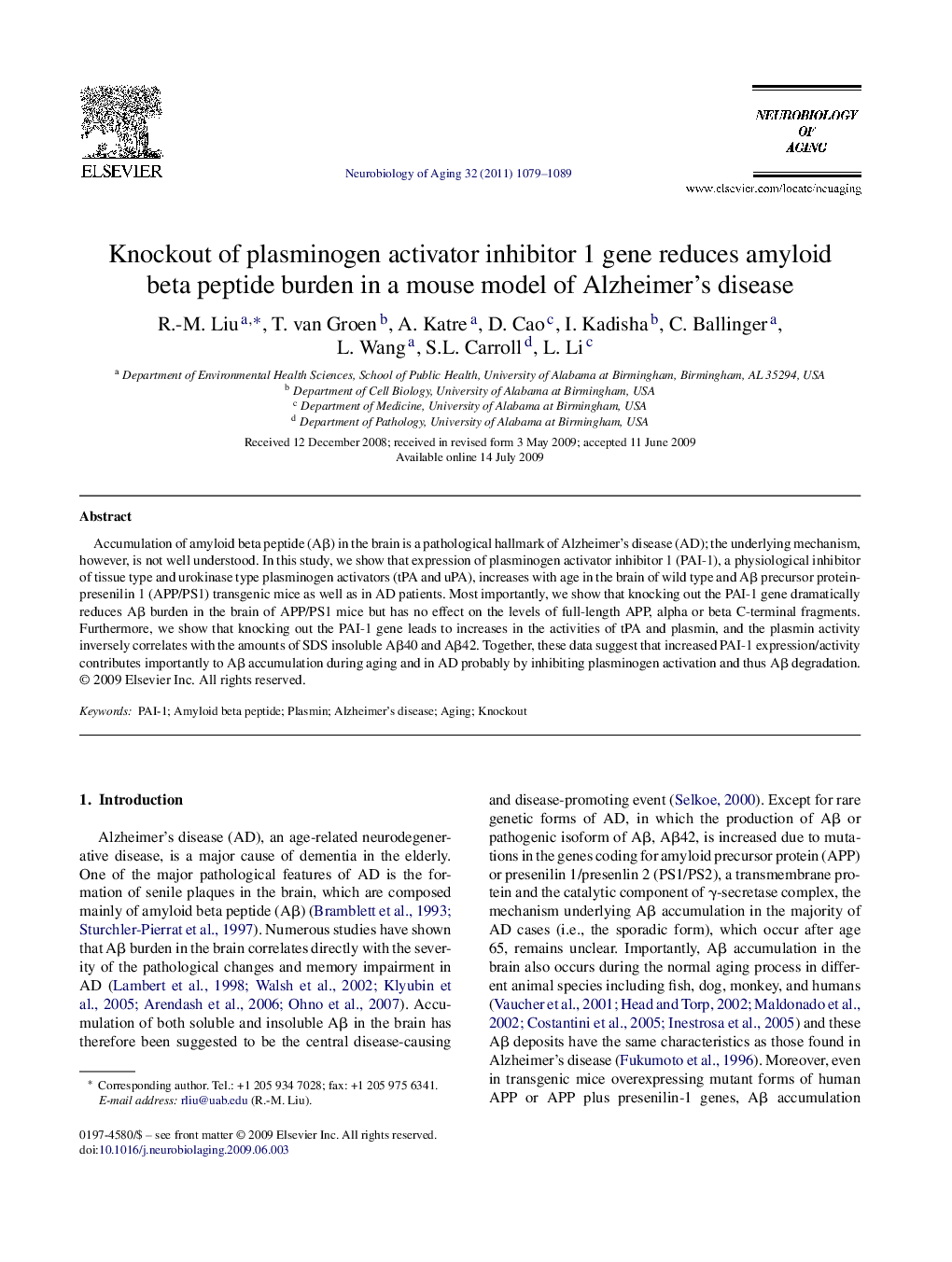| Article ID | Journal | Published Year | Pages | File Type |
|---|---|---|---|---|
| 329212 | Neurobiology of Aging | 2011 | 11 Pages |
Accumulation of amyloid beta peptide (Aβ) in the brain is a pathological hallmark of Alzheimer's disease (AD); the underlying mechanism, however, is not well understood. In this study, we show that expression of plasminogen activator inhibitor 1 (PAI-1), a physiological inhibitor of tissue type and urokinase type plasminogen activators (tPA and uPA), increases with age in the brain of wild type and Aβ precursor protein-presenilin 1 (APP/PS1) transgenic mice as well as in AD patients. Most importantly, we show that knocking out the PAI-1 gene dramatically reduces Aβ burden in the brain of APP/PS1 mice but has no effect on the levels of full-length APP, alpha or beta C-terminal fragments. Furthermore, we show that knocking out the PAI-1 gene leads to increases in the activities of tPA and plasmin, and the plasmin activity inversely correlates with the amounts of SDS insoluble Aβ40 and Aβ42. Together, these data suggest that increased PAI-1 expression/activity contributes importantly to Aβ accumulation during aging and in AD probably by inhibiting plasminogen activation and thus Aβ degradation.
